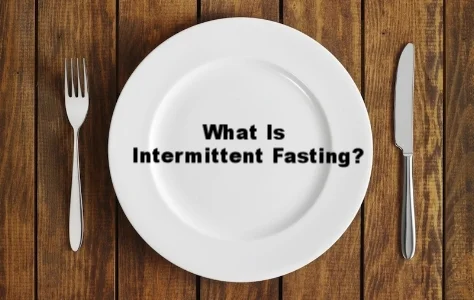Intermittent Fasting is not a diet, but a style of eating. Fasting has helped millions of people lose weight, and even shatter weight loss plateaus. With proper nutrition and dedication, intermittent fasting does work and can get you the results you’re looking for fast. There are multiple members on the GYMCADDY team that use intermittent fasting to lose weight but still gain muscle. This is GYMCADDY’s guide on how to do intermittent fasting.
First off, we need to stress how important it is for you to have a healthy relationship with food. Intermittent fasting should not be used if you have no experience with nutrition planning or dieting in general. Usually, intermittent fasting is great for someone who has successfully dieted in the past and have gotten results. But if you’re brand new to fitness or in your first year of working out, you should stick to caloric deficit dieting.
Ok, so you know about nutrition and understand what macros are and you've dieted in the past and gotten results. So what is intermittent fasting and how do you do it. Intermittent Fasting is a pattern of eating where you Fast for a certain amount of hours and then take in all of your calories in a set window of time every day. You can also customize your Fasting and Eating windows to fit your daily routine and even help get better results.
But wait, everyone says you need to eat breakfast or eat six meals a day to help boost your metabolism so you burn more calories quickly. If you don't eat every 2 hours your body is going to go into a catabolic state and will start to eat away at your muscles for energy. Well thats simply not true. Yes your body can go into a catabolic state if you don't eat for a certain amount of time, but you would have to go days without eating before your body starts eating itself. With intermittent fasting you only go a few hours without eating every day. See, when you eat a meal your body uses energy to breakdown the food you've just consumed. Your body will also use the energy readily available thats stored in your stomach instead of your stored fat. By putting your body in a fasted state and not having any food in your stomach readily available to burn, your body will have no other choice than to get energy from your stored fat. This in turn will lead to fat loss.
In order to start with intermittent fasting we like to start newbies off with a 16 hour fast and an 8 hour eating window. Essentially you’re just skipping breakfast and enjoying a larger lunch. Now keep in mind, the hours that you sleep do count towards your fast. So if you stop eating at 8pm, you can start eating your calories at 12pm the next day. Just keep in mind, the first few days will be a little hard, and you might feel like quitting. But after the first week or so you'll get used to skipping breakfast. In order to enjoy the full benefits of intermittent fasting, you should also workout while in your fasting window. Or at least do fasted cardio to help burn off more fat.
When you first start off with intermittent fasting, you should also take in your caloric maintenance. Even by taking in your caloric maintenance, you should still lose weight while fasting. Eventually you will hit another weight loss plateau even with intermittent fasting. When that happens you can do a few things to jump start the weight loss again. You can either reduce your caloric intake by 100-200 calories per day, increase your cardio, or even adjust your fasting and eating windows. In some cases people can increase their intermittent fasting results by increasing their fasting window and reducing their eating window. At my peak I was fasting for 20 hours and consumed all my calories within a 4 hour eating window.
After years of sticking to this eating schedule, we have found intermittent fasting to have multiple benefits. Aside from increased weight loss, we have also noticed an increase in energy. Fasting also helps you use your time more efficiently but not having to worry about eating every few hours. This allows us to get more work donewithout interruptions. But be warned! Like we said in the beginning of this article, you need to have a healthy relationship with food before even attempting intermittent fasting. If you have bulimic or anorexic tendencies, you should not try intermittent fasting. If you start to develop any bulimic or anorexic thoughts while intermittent fasting then you should stop immediately. Fear is the path to the dark side…
But if done correctly Intermittent Fasting can lead to more energy, better time management and surpassing weight loss plateaus. You can start enjoying the benefits of intermittent fasting by doing a 16 hour fast with an 8 hour eating window and consuming your caloric maintenance. Just remember, before you start intermittent fasting you should have a healthy relationship with food, have experience with dieting, and thoroughly understand nutrition.


